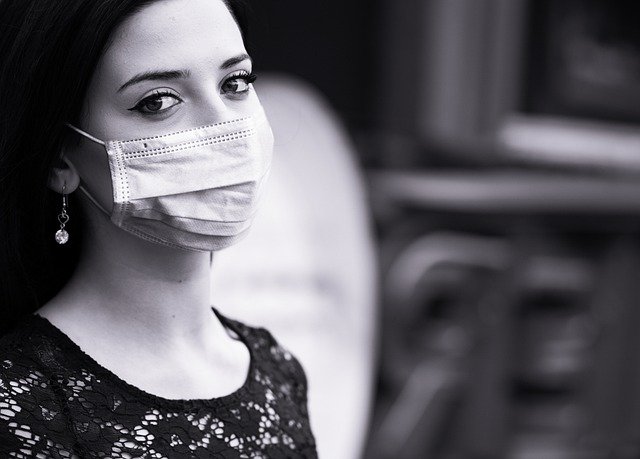When a friend first told me that he wanted the government to compel wearing face masks in public areas – even before the prime minister announced it – he joked that I would find it fascist.
As a libertarian, I find State intervention in the economy and in most social issues distasteful, as personal freedom is the most sacred facet of human life that is equally bestowed upon every person, regardless of their socioeconomic status.
“The smallest minority on earth is the individual”, to quote objectivism philosopher Ayn Rand.
Unfortunately, government intervention, bordering on authoritarianism, has reached dizzying new heights during the Covid-19 pandemic that shows no signs of slowing down globally, as multiple countries report new waves of infections.
I have always advocated education over enforcement in issues related to health because I believe that the will of the State is secondary to one’s personal bodily autonomy. This applies to a contagion like Covid-19 that the World Health Organization (WHO) chief says will have effects lasting for decades. The key to long-lasting behavioural change in health is consistent education because state-sanctioned punishment is not sustainable.
For example, we do not mandate the use of condoms on punishment of fines or incarceration to prevent HIV infection – we educate people about how the virus that causes AIDS is transmitted and why safe sex is important. We wear seatbelts when driving not so much because of the law, but because we know we’ll likely die in a car crash if we don’t.
Although my friend correctly pointed out that many other countries have made face masks mandatory in public places, my fear back then – which proved correct the first day the mask regulation came into effect in Malaysia – was that, unlike other nations, Malaysian authorities would be overzealous in imposing the law and interpret vague rules as they saw fit.
True enough, 127 people were arrested and fined for not wearing face masks in public on August 1. The police even fined 26 people the maximum compound of RM1,000 for failing to wear face coverings on a beach in Kota Tinggi, Johor, with a news report depicting a police officer standing in front of five people sitting on a mat with food and drink.
Social media has also surfaced disturbing anecdotal reports of police harassment, like a woman who was fined RM1,000 for not wearing a face mask even though she was walking back towards her car in an open-air car park, near a market, after realising she had forgotten to retrieve it (she refused to pay the summons and filed a police report instead).
Health Minister Dr Adham Baba’s statement on July 30 simply listed the use of face masks in public transport, workplaces, grocery stores, and “crowded environments”, without defining the size of a crowd. Beaches were not mentioned as a place that required face masks.
The National Security Council (NSC) said in a message on August 1 at 10.38am on its Telegram account that wearing face masks is mandatory in public transport (including e-hailing services) and “crowded” public areas like wet markets, supermarkets, recreational parks, and tourist spots.
Is it fair to slap the maximum fine on people hanging out in an open environment like the beach, who are most likely sitting down at least 1 metre away from other groups, when the announcement on the mandatory use of face masks in tourist spots just came out on the first day the mask rule came into effect? Even then, it was only posted on NSC’s Telegram account that only has about 1.1 million subscribers in Malaysia’s 32-million population.
Both the NSC and Ministry of Health (MOH) websites contain no details on where exactly the mask rule applies or exceptions to the regulation. The only people exempted from the rule are children aged below two years, and people with disabilities or who cannot remove their face mask without assistance.
This is in stark contrast to the state of Victoria in Australia – which requires residents to wear a face covering when leaving home – that lists on the state government’s website various “lawful exceptions” to the rule, such as infants and children below 12 years; people with medical conditions, including breathing problems like asthma (no medical cert required); people with past traumatic experiences; people who are deaf and need to see one’s mouth for communicating; when jogging or running (face coverings must be worn when one finishes exercising); when consuming food, drink or medication; during emergencies like domestic violence; or a person travelling in a vehicle by themselves or with other members of their household.
People who do not wear face coverings and do not have a lawful excuse can be fined A$200 (RM605), a considerably low sum in Australia with a national minimum wage of about A$3,000 (RM9,087) a month (A$753.80 per 38-hour week), compared to the RM1,000 fine in Malaysia with a monthly minimum wage of RM1,200. The Melbourne authorities’ website even lists face mask businesses and invites such businesses to email them to get featured.
It is also unclear if Malaysian police have the power to issue fines against people who do not wear face masks in public, as a regulation specific to face coverings has yet to be gazetted and published on the Attorney-General Chambers’ federal gazette portal. The latest regulation on the Recovery Movement Control Order – the Prevention and Control of Infectious Diseases (Measures within Infected Local Areas) (No 7) Regulations 2020 from June 10 to August 31 – simply states under Clause 10 that the Health director-general “may issue any direction” to people carrying out any activity. Clause 11 states that anyone who contravenes any provision of the regulation or “any direction of the Director General” commits an offence punishable by a maximum fine of RM1,000, up to six months’ jail, or both.
If the authorities have been issuing compounds under Clause 10 of the regulation, it is extremely unjust to do so when the rules are vague. Most Malaysians are law-abiding citizens, but how can they obey the law when the rules are unclear, haphazard, and subject to arbitrary interpretation by officials on the ground?
The government also doesn’t empower Malaysians to follow the mandatory mask rule, simply saying that the general public should wear a 3-ply fabric mask according to WHO specifications or that we should make our own. The state of Victoria in Australia, on the other hand, has published simple written instructions and even a video on how to make a face mask.
The Malaysian government should make it easy for people to follow the law by making the mask rule as clear as possible, listing specific venues that require the use of face coverings and exemptions of certain situations or people. Children below the age of 12, not just toddlers below two, should also be exempted; otherwise, we might see enforcement against teachers or parents across primary schools, kindergartens, or day care centres, as most young children might find it difficult to wear face masks for long hours.
Instead of angrily issuing compounds over the slightest perceived infraction, the police should act with professionalism and courtesy and politely remind people to wear face masks and how to don them properly. Treat ordinary Malaysians like how you would treat a YB, many of whom wear face masks incorrectly too, if at all.
As the coronavirus rages on – with the end not yet in sight as long as we don’t have a vaccine, which could be years away – the Malaysian government must change its narrative so that the “new norms” will continue to be practiced even in the absence of enforcement. We cannot remain in a state of perpetual MCO for years.
Our aim is not zero Covid-19 cases. That is a misleading and unrealistic goal. We should simply aim for continuously “low and stable” local transmission rates – whatever that figure is, depending on our health care system’s capacity – that should be revealed by the government. Instead of just harping on our personal responsibility in curbing the virus, the government must play its part in ensuring sufficient testing, tracing, and quarantine, and being transparent about such efforts.

Boo Su-Lyn is CodeBlue editor-in-chief. She is a libertarian, or classical liberal, who believes in minimal state intervention in the economy and socio-political issues.








